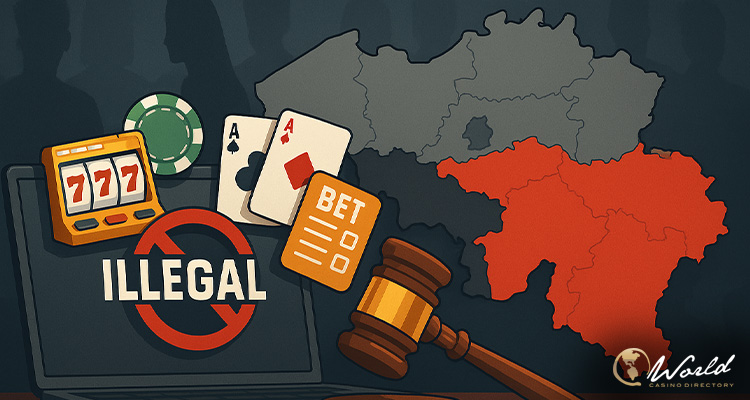A recent study commissioned by the Belgian Association of Licensed Gaming Operators (BAGO) has revealed a troubling reality: approximately 25% of Belgian gamblers are using unlicensed gambling websites. These illegal platforms, which evade national regulation, now represent a significant and growing share of the country’s gambling activity.
The findings underscore more than just financial implications. BAGO stresses that the unregulated market jeopardizes consumer protection and puts vulnerable individuals—particularly young people—at considerable risk. Unlike licensed operators, illegal platforms lack crucial safeguards such as deposit limits, age checks, and integration with Belgium’s Excluded Persons Information System (EPIS), which tracks self-excluded gamblers.
The EPIS system, administered by the Belgian Gaming Commission since 2004, is designed to prevent individuals who have voluntarily barred themselves from gambling from accessing legal platforms. However, the new data published by BAGO reveals that nearly 47% of these self-excluded individuals continue gambling through unlawful sites, highlighting the failure of existing mechanisms to curb participation in the black market.
Young Adults Show High Exposure to Unlicensed Gambling
The study’s most concerning revelations relate to the 18-21 age group. Prior to the legal age increase for gambling, which took effect in September 2024, nearly half of the young men surveyed in this age range reported using illegal platforms. Since then, the figure has surged to 65%, suggesting that the age restriction may have unintentionally pushed more young adults toward unregulated operators.
Brand recognition also paints a stark picture. While just 4% of the general gambling population mentioned an illegal site when asked about familiar brands, 29% of men aged 18-21 identified an unlicensed operator as their first thought when thinking of gambling online. Even more telling, 85% of individuals in this age group could recognize an illegal gambling site, compared to only 15% who identified a licensed provider.
Social media and sports sponsorships appear to play a significant role in this trend. Among young respondents, 31% said they discovered illegal platforms through social media channels, while another 26% cited sports-related advertising as the source of exposure.
BAGO Urges Stronger Regulatory Enforcement
BAGO leadership has responded with a call to action. “We are on a slippery slope,” said Tom De Clercq, chairman of BAGO. “While licensed gambling sites are subject to strict rules, invest in responsible gaming (think of the Duty of Care charter that we signed in November 2023) and actively protect players, illegal operators are given free rein. And that has consequences: more and more people, especially young people and vulnerable target groups, end up in an illegal circuit without rules, without control and without protection. If we do nothing, Belgium (like some neighbouring countries) risks losing control over its gambling market.”
BAGO’s vice-chairman, Emmanuel Mewissen, emphasized the urgency of empowering the Gaming Commission to act decisively. “In the fight against the plague of illegal gambling, BAGO fully supports the implementation of the coalition agreement, which should give the Gaming Commission the means to develop into a powerful regulator. Only in this way can it effectively tackle illegal providers, protect consumers and maintain a well-regulated private market.”
As Belgium confronts the surge in unregulated gambling, BAGO’s findings point to a growing need for coordinated policy and enforcement efforts. The association insists that only through enhanced authority for regulators and stricter oversight can the trend toward illegal gambling be curbed, ensuring a safer environment for all players.



